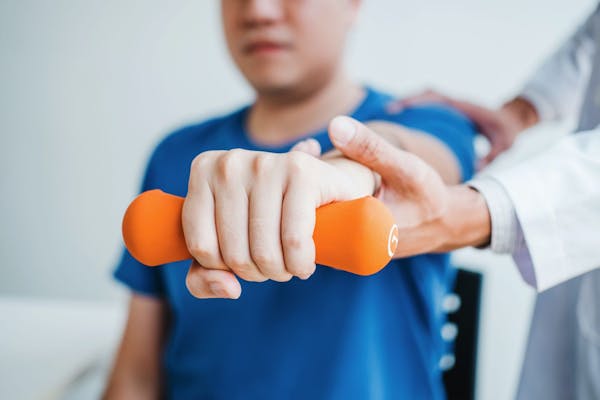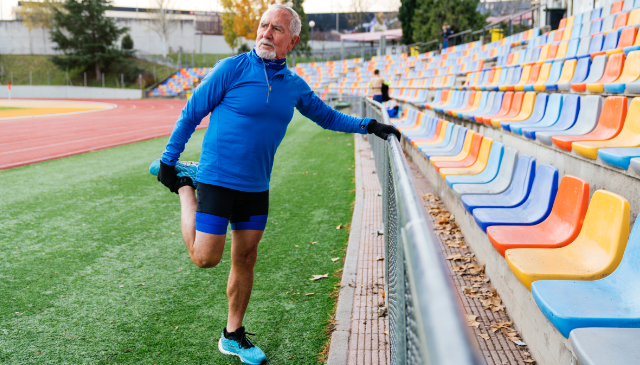Health Blog: Solutions & Wellness Tips
Physical Activity May Slow the Progression of Parkinson's Disease

Parkinson's disease is a progressive neurological condition that affects millions of people worldwide. For those living with Parkinson's disease, challenges such as instability, slower movement, and mental decline can gradually worsen over time. While medications offer symptom relief, they cannot stop the disease's progression, which leaves many patients wondering what else can be done.
A recent study published in Neurology has revealed some encouraging news: regular physical activity may significantly slow the progression of Parkinson's disease. The research examined patients with early Parkinson's disease over a long–term period and found that those who maintained high levels of physical activity experienced slower declines in balance, walking ability, and cognitive processing. These findings underscore the power of staying active and show why physical therapy can be a valuable tool in managing Parkinson's disease.
Let's break down what this means for you or your loved one and how physical therapy could help to keep Parkinson's symptoms at bay.
Study Findings: How Physical Activity Impacts Parkinson's Progression
The study followed 237 patients with early–stage Parkinson's disease over several years, tracking their physical activity levels and monitoring changes in motor and cognitive functions. The key findings were as follows:
- Slower Decline in Balance and Gait Stability: Patients who regularly engaged in moderate–to–vigorous exercise experienced slower deterioration of their ability to balance and walk.
- Better Daily Function: Higher physical activity levels were linked to a slower decline in activities of daily living, like getting dressed, cooking, or moving around the house.
- Preserved Cognitive Processing Speed: Work–related physical activities, such as light tasks or volunteer work, were associated with slower declines in mental processing speed.
The results were clear: physical activity isn't just about staying fit—it can directly impact how quickly Parkinson's symptoms worsen. By staying active, patients may preserve their mobility and independence for a longer time.
Why an Active Lifestyle Matters for Parkinson's Disease
Parkinson's disease often leads to instability in one's posture, which increases the risk for falls. Balance, gait, and fine motor skills become more challenging as the disease progresses. The study's findings highlight the role of moderate–to–vigorous exercise—like walking, swimming, or balance exercises—in slowing this decline.
Additionally, regular physical activity helps maintain cognitive function, which is often impacted by Parkinson's disease. Tasks involving light work, household chores, or aerobic movement may stimulate the brain, improving mental processing speed and keeping patients more engaged in their daily lives.
How Physical Therapy Can Help You Stay Active
Physical therapy can play a critical role in helping patients with Parkinson's disease maintain an active lifestyle that matches their unique needs and abilities. Here's how a physical therapist can help:
- Customized Exercise Plans: Physical therapists always design a tailored program for each patient that will include balance training, gait exercises, and aerobic activity to improve mobility and reduce falls.
- Safe Progression of Activity: Working with a professional ensures you are safely engaging in physical activity without overexerting yourself.
- Improved Quality of Life: With guidance and support, you can stay independent longer, maintain your daily routines, and slow the progression of symptoms.
The key takeaway? Movement matters, but consistency is just as important. Regular, structured physical activity guided by a therapist can provide both immediate and long–term benefits for those living with Parkinson's disease. So if you or a loved one has been diagnosed with Parkinson's disease, it's never too early—or too late—to start moving. The research is clear: staying physically active can help preserve balance, strength, and independence, all while slowing the progression of Parkinson's symptoms.
Contact Us Today!
Our team of experienced physical therapists is here to help you or your loved one take better control of Parkinson's symptoms. Call our clinic today to learn more about our services or to schedule an appointment with one of our specialists.
For more information about the featured study on Parkinson's disease, click here to read the full text.



